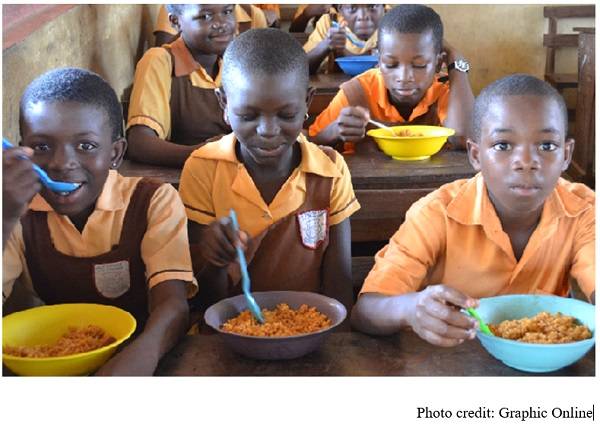School Feeding Programme: Caterers propose increment to ¢3.50 per child.
The National School Feeding Caterers Association is suggesting an allocation of ¢3.50 per meal for school students participating in the School Feeding Programme. They believe that this amount would be sufficient to provide nutritious meals to pupils attending basic schools throughout the country. This proposal comes in response to the government's announcement of an increase in the cost per meal per child from 98 pesewas to ¢1.20. The Minister for Gender and Social Protection, Lariba Zuweira Abudu, stated that discussions are underway with the Ministry of Finance to explore the possibility of adjusting the amount.
However, the caterers have strongly rejected the proposed increment, arguing that it is grossly inadequate to adequately feed the children. Charlotte Asante, the President of the School Feeding Caterers' Association, expressed their position during an interview on Adom FM's morning show, Dwaso Nsem, on Tuesday. Asante justified their stance by explaining that the caterers are struggling to provide a balanced meal for the pupils due to the rising prices of food. She emphasized the financial difficulties they face, stating that the current funding is insufficient, causing significant hardship.
Asante expressed her disappointment that the government is not providing adequate financial support to aid in the preparation of the meals. She questioned why the government cannot allocate just ¢3.50 per child to sustain such a commendable program. As a result of their grievances, the caterers have collectively decided not to cook until the government reviews the meager amount of ¢1.20 per child.
The Ghana School Feeding Programme was initiated by the Government of Ghana in 2005 with the objective of providing food to children in public basic schools, ranging from kindergarten to primary six. The program aims to achieve various goals, including increasing school enrollment, attendance, and retention, addressing short-term hunger and malnutrition, and promoting domestic food production.




No comments yet
Be the first to share your thoughts!